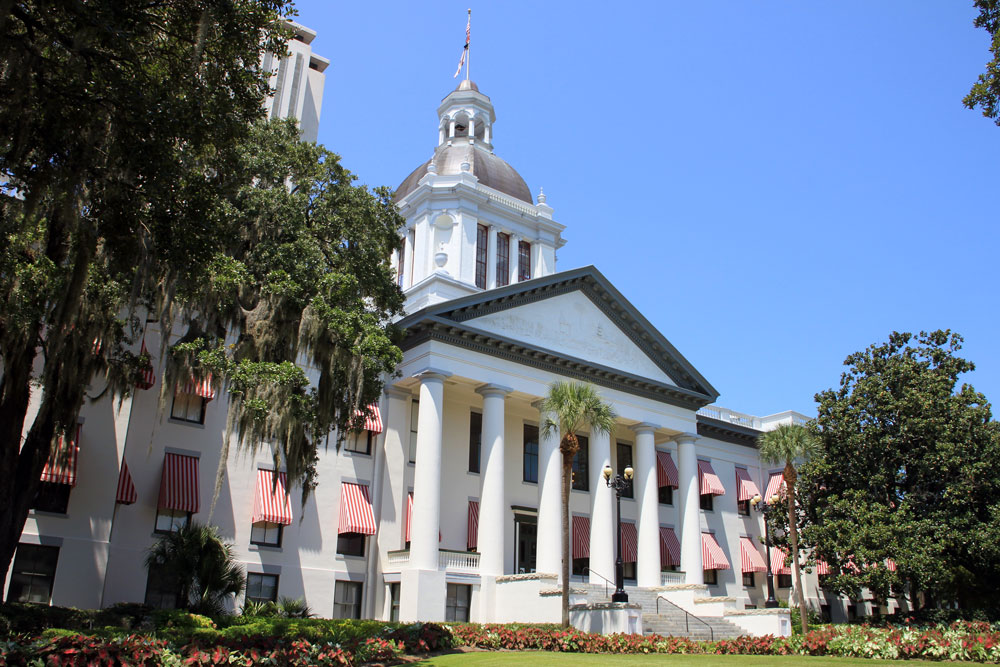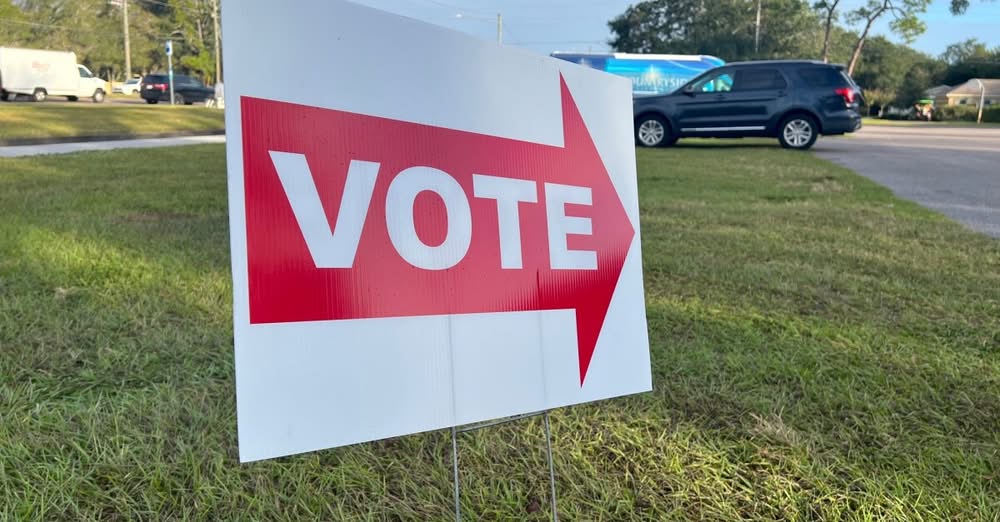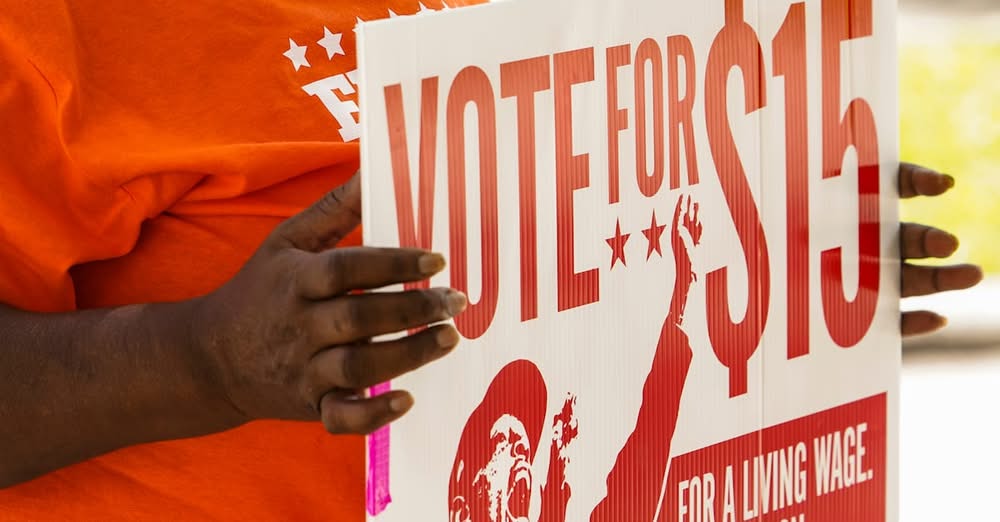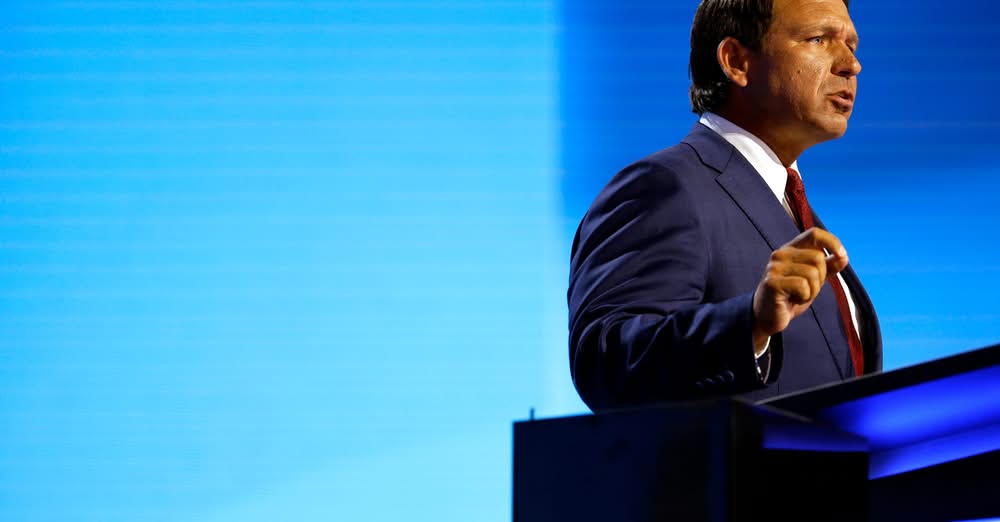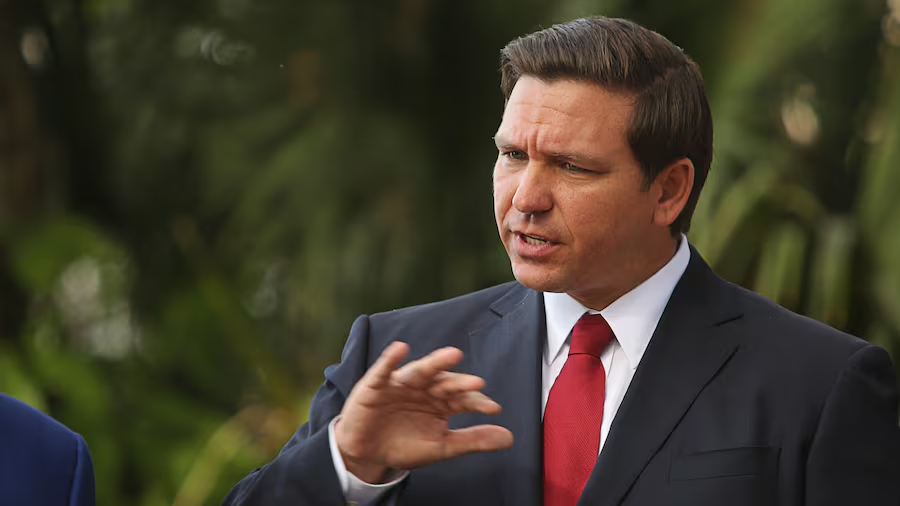Tallahassee, FL – HB 1205, a bill to restrict citizen-led amendments, was approved by the Florida House of Representatives earlier today. The citizen-led amendment process is one of the most direct ways Floridians can shape the future we all deserve. It embodies the collective power of Floridians, uniting us across race, zip code, and income to address the issues that matter most to our communities. This is direct democracy at its best—a system where the will of the people drives progress and shapes a better future.
If this bill or its companion in the Senate, SPB 7016, becomes law it will give only ten days to turn in petitions, and create unnecessary and burdensome fines on volunteers, preventing everyday Floridians from being able pass policies that improve our lives and strengthen our communities when politicians refuse to act.
State Voices Florida opposes this legislation and urges the Senate to reject both HB 1205 and SPB 7016. The citizen-led amendment process in Florida is the strictest in the nation, requiring nearly one million signatures to get on the ballot and 60% support from voters to pass. The process should be made easier…not harder.
As lifelong conservatives, we believe in limited government, personal responsibility, and the rights of the people to shape our own governance. We founded Conservative Women for Freedom because we are a dedicated group of local Republican women committed to safeguarding the rights and futures of our children and grandchildren. We’re speaking out against House Bill 1205, a dangerous assault on grassroots democracy that would all but eliminate the ability of everyday Floridians to bring citizen-led ballot initiatives to the people.
In a state that has long championed individual freedom, HB 1205 does the opposite. It stacks the deck against regular citizens and ensures that only the wealthiest and most powerful can even attempt to bring an initiative before the voters. This bill is not about election integrity. By requiring initiative sponsors to post a staggering $1 million bond before gathering signatures, the bill ensures that only the well-connected can afford to participate. Who among us can write a check that size?
The bill also creates unnecessary bureaucratic hurdles that make compliance nearly impossible and dramatically increases fines for simple mistakes, establishing financial punishments that could bankrupt a citizen-led effort. This red tape is unnecessary, costly, and serves no real purpose beyond discouraging participation. The bottom line is that these rules have nothing to do with preventing fraud.
As conservatives, we have long argued for limited government and the rights of the people to hold their elected officials accountable. And Republican primary voters agree—one recent poll showed 55 percent of GOP primary voters in Florida oppose any effort to make it even harder for a citizen-led amendment to make the ballot.
A day after the Florida House started moving forward with its version of the plan, the Senate on Friday released a wide-ranging bill that would add restrictions to the state’s ballot-initiative process.
The Senate Ethics and Elections Committee on Monday will consider the bill, which, among other things, would place new requirements on petition gathering and open the door to legal challenges after constitutional amendments pass.
Gov. Ron DeSantis has made a priority of trying to restrict the initiative process after he successfully led efforts last year to defeat proposed constitutional amendments on abortion rights and recreational marijuana. DeSantis and other Republicans contend changes are needed to combat fraud in the process, particularly in the collection of petition signatures needed to put measures on the ballot.
“Amending Florida’s constitution is a responsibility every voter takes very seriously, and petition integrity is critical to ensuring the effectiveness of the citizen initiative process,” Senate President Ben Albritton, R-Wauchula, said in a statement Friday as the chamber released its bill (SPB 7016). “This legislation increases transparency and accountability for sponsors of initiatives; deters, prevents and penalizes fraudulent activities; and provides voters with objective information about financial impacts of proposed amendments at the front end of the process.”
TALLAHASSEE — Florida’s Legislature is eyeing changes to the ballot initiative process after last year’s intense fight over two proposed amendments on abortion access and recreational marijuana.
Opponents say the bill would consolidate more power in the hands of Tallahassee and monied special interests. Proponents say the changes ensure the integrity of the process and keep out-of-state special interests out.
Florida’s ballot initiative process, a right guaranteed in the constitution, has long been used by groups to pass measures that have been otherwise stymied by state lawmakers. It’s how Florida got a $15 minimum wage, medical marijuana and felon voter restoration.
The process is among the hardest of any of the 24 states that allow citizens to directly amend their laws or constitution. Legislative changes have made the process in Florida harder and costlier in recent years.
HB 1205 would continue that trend, about a dozen public commenters warned during the bill’s first committee meeting Thursday.
They pointed to the bill’s requirement that sponsors put up a $1 million bond before collecting any petitions, as well as its proposals to increase fines, add new requirements and tighten the window to return petitions.
The SAVE Act is back, and it’s dangerous for democracy.
Unlike 2023, when the first national voter suppression law never reached Joe Biden’s desk, this version of the Safeguard American Voter Eligibility Act is on a fast track to Donald Trump.
If it passes, millions of married and divorced women — Republican, independent and Democrat alike — will not be able to vote in federal elections.
All voters would face new hurdles. But birth certificate names are a key to this bill, and only one voting segment routinely changes their birth name: married women.
Under the SAVE Act (H.R. 22), people who register to vote or update their registration, even for something as minor as a change of address, will have to confirm their citizenship.
For most, that would require producing either a birth certificate or a passport.
However, roughly eight in 10 women take their husband’s surname when they marry, and many who divorce keep that name. As a result, their birth certificate name will not match their legal name.
The bill has nothing to say about citizens whose current legal name doesn’t match their birth name.
So far in this year’s legislative sessions, three states have introduced state voting rights acts. If the bills pass, Arizona, Colorado and Maryland will join the eight other states that already have VRAs: California, Connecticut, Illinois, Minnesota, New York, Oregon, Virginia and Washington.
California was the first state to pass a voting rights act in 2002, and Illinois followed in 2011. Legislative action on state VRAs picked up in the late 2010s—between 2018 and 2024, six states enacted them. These laws apply to local jurisdictions and commonly include extensive provisions for language assistance, preclearance by a state entity for any proposed voting procedure changes, protections against vote dilution, and guidelines for determining what is a violation of voting rights.
Many state VRAs are modeled after the federal Voting Rights Act of 1965. Among other things, the federal law prohibits race-based denial of the right to vote and protects the voting rights of people with disabilities or limited English proficiency. The VRA also plays an important role in redistricting.
Federal VRA litigation involves complex factors that are not written in the statute but have been interpreted by courts over time. Many state VRAs include these details in their statutory text instead of leaving it up to case law. For example, state VRAs commonly require evidence that voters are polarized along racial lines to prove the government has violated the law—a tenet adopted by decades of litigation in federal cases.
The program helps Black-owned businesses obtain borrow money when they can’t access traditional lending.
As part of his budget proposal for fiscal year 2025-26, Gov. Ron DeSantisplans to eliminate funding for the Black Business Loan Program.
His budget, called “Focus on Fiscal Responsibility,” calls for the cancellation of $2.225 million for the program, which provides loans for “Black business enterprises that cannot obtain capital through conventional lending institutions but that could otherwise compete successfully in the private sector,” according to Florida State Statute.
The program, last decade, had a record of controversy, including allegations of high rates of default, inadequate security for loans, and loans made improperly to ineligible people, including elected politicians and a convicted felon, according to reporting in the Florida Times Union of Jacksonville, theGainesville Sun and FloridaPolitics.com.
The budget cut falls under community development programs within Housing and Community Development. Overall, the department stands to be funded at $438 million under the Governor’s budget proposal, a little less than half its funding in the current budget year.
TALLAHASSEE — For the last six years, Gov. Ron DeSantis has been used to getting his way with the state Legislature, at times slashing the priorities of Republican leaders and calling them back to Tallahassee to pass bills that boost his political profile.
No more.
DeSantis now finds himself in a place he’s never been before: in a standoff with the state’s Republican House speaker and Senate president over his call for a special legislative session next week to change laws on immigration, voting and condominiums.
So far, DeSantis appears to be losing.
He’s taken to publicly shaming GOP lawmakers on X and on Fox News, accusing them of hypocrisy by not supporting President Donald Trump’s immigration agenda. On Tuesday, he sent a plea through the Republican Party of Florida’s email list asking voters to call their local lawmakers.
On Thursday, DeSantis held a news conference in Jacksonville to pressure lawmakers to act on immigration.
“Monday’s special session is a great opportunity for the members of the Florida Legislature to basically put their money where their mouth is,” DeSantis said.
TALLAHASSEE — For the last six years, Gov. Ron DeSantis has been used to getting his way with the state Legislature, at times slashing the priorities of Republican leaders and calling them back to Tallahassee to pass bills that boost his political profile.
No more.
DeSantis now finds himself in a place he’s never been before: in a standoff with the state’s Republican House speaker and Senate president over his call for a special legislative session next week to change laws on immigration, voting and condominiums.
So far, DeSantis appears to be losing.
He’s taken to publicly shaming GOP lawmakers on X and on Fox News, accusing them of hypocrisy by not supporting President Donald Trump’s immigration agenda. On Tuesday, he sent a plea through the Republican Party of Florida’s email list asking voters to call their local lawmakers.
On Thursday, DeSantis held a news conference in Jacksonville to pressure lawmakers to act on immigration.
“Monday’s special session is a great opportunity for the members of the Florida Legislature to basically put their money where their mouth is,” DeSantis said.

